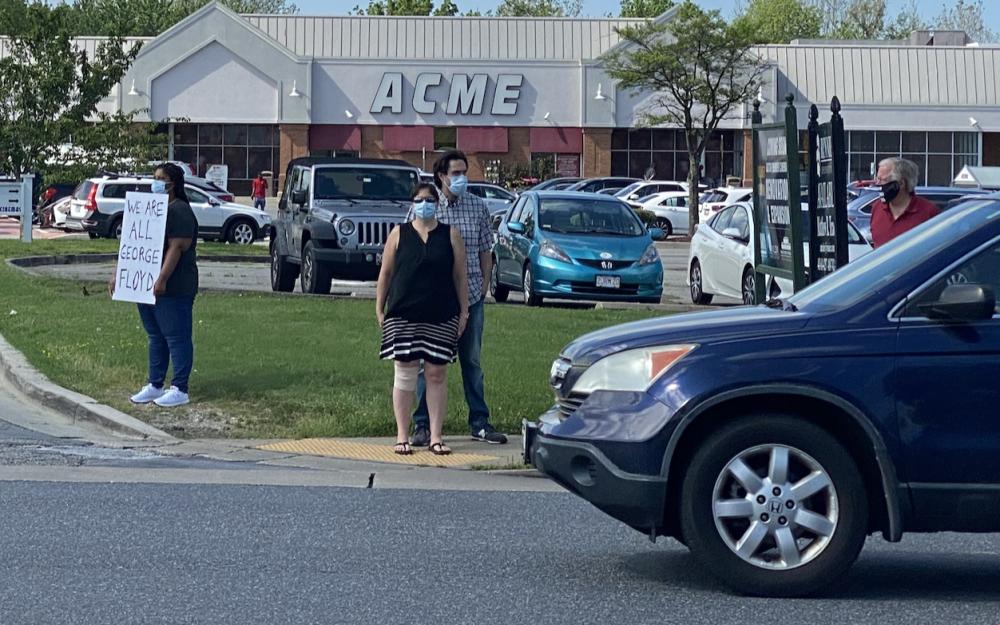I believe our national leadership has failed to demonstrate an ability to handle the crises besetting the nation. I’ve tried to step back and take a long look at what some of this means.
I spent grade school days in the New York Public School System, at P.S. 29. At the time, our report cards included an evaluation called “Respects the Rights of Others”. I was graded “U” for unsatisfactory or “S” for satisfactory. Sadly, I was not a straight “S” student. However, the evaluation left an indelible impression on me. I understood that I had a responsibility to the larger community to respect others and if I failed to do so I would be held accountable for my behavior by that community. If the community of which we’re a part won’t hold us accountable, who will? Today, we have an incompetent president who is not being held accountable by congress for his failures to respect the rights of others. It is having a trickle-down effect on others serving public offices.
I believe that the president is not up to the tasks the office requires. We are not being guided and helped through this national crisis; in the case of the coronavirus, the ramifications of the crisis were woefully minimized. The president’s mindless tweets during the escalating protests against racial injustice have provoked and inflamed violence. He has belittled governors on the front lines trying to manage the best they can.
It seems a tepid way to phrase it, but when George Floyd was so brutally murdered, it was the colossal failure of a public servant to respect the rights of others. It’s the trickle-down effect. During his presidency, Trump and his team has shown scant respect for the rights of others. He provokes confrontations unnecessarily. His relentless retributions, often brutal, go on and on, and his character assassinations are ritualized. He dazzles and bullies, but doesn’t lead. It’s impossible to pretend anymore; the emperor has no clothes.
What has happened is that the Covid-19 pandemic and the unhealed wounds of America’s long history of racial strife created a national crisis of historical proportions. We desperately need visionary leadership, particularly the kind that helps guide us. Respecting the right of others is the backbone of democracy. At P.S. 29, if you didn’t respect the rights of others, you were sent to the principal’s office. I know.
The Presiding Bishop of the Episcopal Church, Michael Curry, preached a visionary sermon at the National Cathedral last Sunday. He spoke to how, when we begin to behave only in our own interests, it creates a sick and divisive social climate. Bishop Curry is an African American.
As he spoke, he placed a hand forward, took a surgical mask and began to put it on his face. While he was doing it he asked questions, rhetorically: “Why am I doing this? Am I doing this for me? Who am I doing this for?” He then reached up and touched the mask and he said that he was doing this for someone else. The mask would not protect him from the ravages of the virus, but if he wore it he might spare somebody else the pain of suffering. Yes, he went on to say, it’s an inconvenience, and yes, it keeps reminding me of something I have to do, but I do it because I know it may save someone else. Living for others looks like this.
Like the president, Bishop Curry holds an elective office. He, too, is an international leader. He is charged to serve and lead. He has a vision and he cares. He’s a leader who “gets it,” and is helping others to “get it.” There are others like him, of course, but it’s so important now to have visionaries in leadership positions to guide us through the complications of our post-modern era and to model what respecting the rights of others looks like.
We need to thank another inspired leader, Dan Watson, for helping the community mobilize and lend its voice in protesting injustice while collectively mourning the loss of another black life. For those who were not there, protesters showed up on Saturday morning to stand on both sides of Marlboro Street, from the Easton by-pass to Glebe Road.
Columnist George Merrill is an Episcopal Church priest and pastoral psychotherapist. A writer and photographer, he’s authored two books on spirituality: Reflections: Psychological and Spiritual Images of the Heart and The Bay of the Mother of God: A Yankee Discovers the Chesapeake Bay. He is a native New Yorker, previously directing counseling services in Hartford, Connecticut, and in Baltimore. George’s essays, some award winning, have appeared in regional magazines and are broadcast twice monthly on Delmarva Public Radio.



kathy Bosin says
Yes!
Marguerite Canfield says
Beautiful
Bridget Ainley says
I am not from the USA but i am looking in through my family and articles like yours. I agree with your article, I have seem some very moving words or sorrow and pain and word of blame and bile. Telling people to try drugs they cant afford to stave a virus, telling people not to lock down, not to explore help for the poor, sick, homeless, jobless, or anyone deprived of opportunity is sad. To criminalise all of the consequences of those challenges creates bullies, a lack of compassion and a perpetuation of the have and have nots. Add a large dose of racism and you have the ‘bring in the national guard’ attitude which is fuel to the pain and not a salve to promote healing.